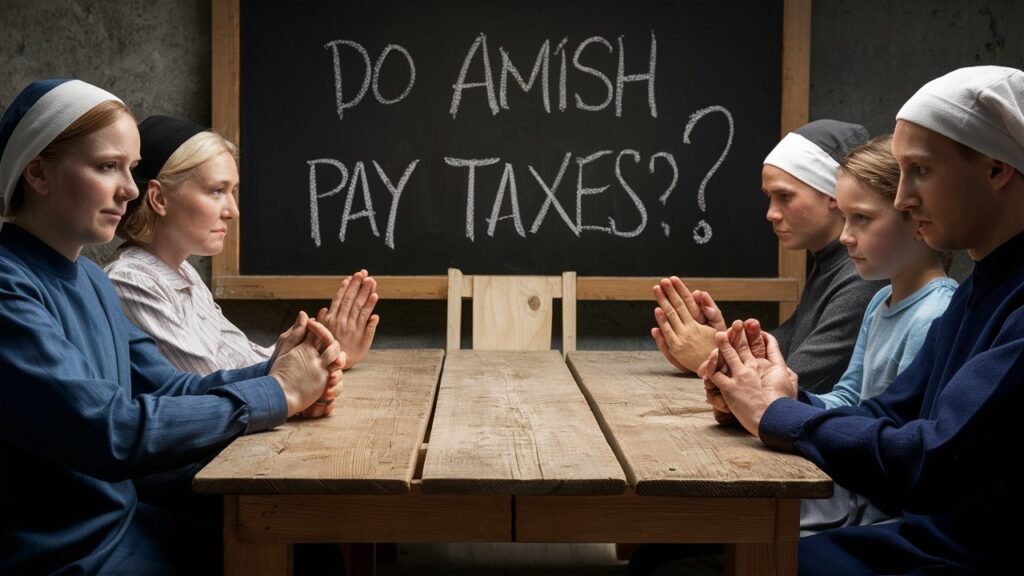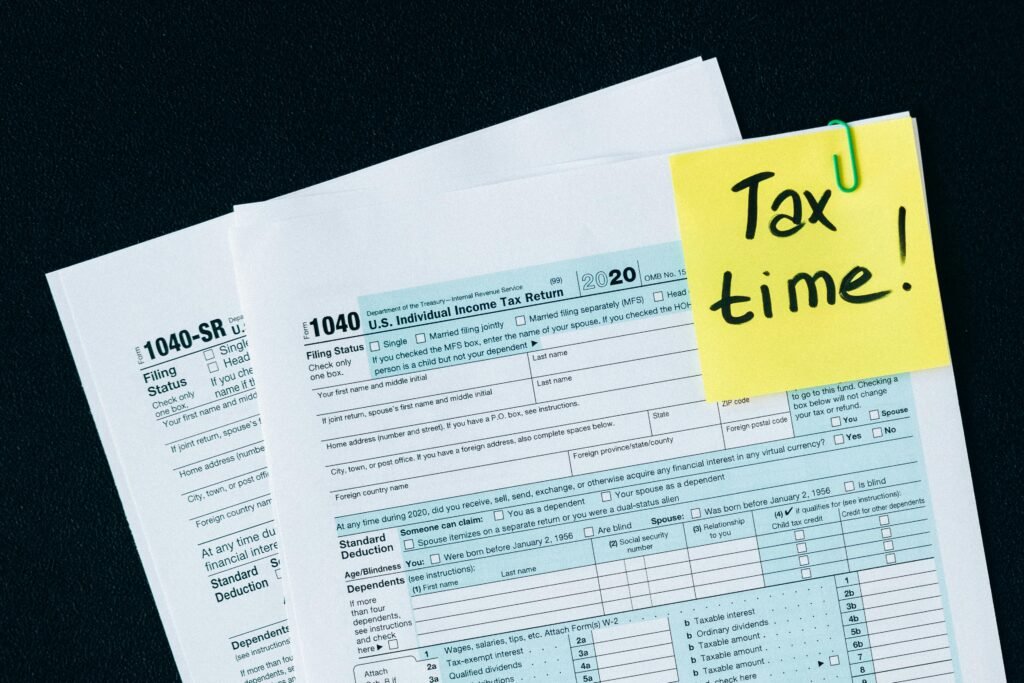
Live Chat Jobs – You have to try this one
Amazing New AI Technology Builds An Entire Business For You From Scratch
Intro
Have you ever wondered, “Do Amish pay taxes?” The financial obligations of the Amish community are often a topic of curiosity for those outside of their close-knit society.
In this blog post, we will delve into the complex world of Amish taxation, exploring the various ways in which the Amish contribute to local, state, and federal coffers.
Understanding the Amish Lifestyle and Its Impact on Tax Obligations

The Amish lifestyle, characterized by simplicity, community focus, and self-reliance, plays a crucial role in shaping their approach to financial responsibilities, including taxes.
This community prioritizes a life that eschews many modern conveniences, which can significantly influence their economic activities and, consequently, their tax obligations.
The emphasis on a simple life means that the Amish may have fewer transactions subject to sales tax, but this doesn’t exempt them from fulfilling their tax duties.
Their commitment to mutual aid within the community, a system where members support each other in times of need, reflects their broader view of contributing to the welfare of their society, including through taxes.
Their economic model, heavily reliant on agriculture and small businesses, not only defines their day-to-day life but also determines the nature of their tax contributions.
For example, owning and operating a farm or a craft shop requires dealing with specific tax obligations, such as property and business taxes.
This self-sustained approach is a testament to their industrious nature and how it dovetails with their tax responsibilities.
Additionally, their religious convictions play a role in certain tax exemptions, particularly regarding Social Security and Medicare, highlighting the intersection between faith and fiscal obligations.
Thus, the Amish way of life, while seemingly distant from the complexities of modern financial systems, navigates its path through the tax landscape.
Their lifestyle dictates their economic engagements, influencing both the scale of their tax contributions and their interactions with the broader tax system.
Federal Income Taxes: Do the Amish Pay?

The notion that Amish individuals are exempt from paying federal income taxes is a widespread but incorrect assumption.
In truth, the majority of Amish people are subject to the same tax laws as other U.S. citizens, which means they do indeed pay federal income taxes.
The Amish community’s commitment to living a life aligned with their religious beliefs does not extend to an exemption from these taxes.
However, it’s important to note that there are specific circumstances under which certain Amish may not participate in the federal tax system.
These exceptions are largely tied to their deep-seated religious convictions and the way their community structures economic activities, not a blanket exemption granted to all Amish.
While many Amish are engaged in farming, craftsmanship, and small businesses—activities that generate taxable income—they fulfill their obligations by contributing to the federal tax pool.
The process through which they file and pay taxes might differ, given their preference for manual record-keeping over digital means, but the end result aligns with that of the general population’s duty to the IRS.
Moreover, the unique lifestyle of the Amish does lead to some tax scenarios that are uncommon outside their community, such as issues related to self-employment and business operations.
Yet, these differences do not equate to an outright exemption from federal income taxes, but rather, necessitate a nuanced understanding of how tax laws apply to various forms of income and religious practices.
State and Local Taxes: The Amish Contribution

Amish communities, much like any other demographic, play a vital role in contributing to state and local tax revenues, albeit with some unique considerations given their lifestyle and economic activities.
This participation extends to a variety of taxes that support community infrastructure and services, including but not limited to, sales tax on goods and services they purchase, and property taxes on their land and buildings.
The Amish’s engagement with state and local taxation underscores their commitment to fulfilling civic responsibilities while adhering to their cultural and religious values.
Their economic endeavors, often centered around agriculture, craftsmanship, and small businesses, generate revenue that is subject to state income taxes.
The Amish approach to business, while traditional, does not exempt them from the financial obligations that accompany entrepreneurship and property ownership within the United States.
Despite their minimalist lifestyle and infrequent use of public utilities and services, they contribute to the funding of public goods from which the wider community benefits.
This includes educational facilities, road maintenance, and emergency services, all funded through state and local taxes.
Interestingly, while the Amish generally participate in the public school system to a lesser degree, preferring private or home schooling within their communities, they still contribute to the educational system through property taxes.
This aspect of their tax contribution highlights a broader commitment to the welfare of the community that extends beyond their immediate needs.
The Amish’s payment of sales and use taxes further illustrates their integration into the broader economic system, despite their distinctive lifestyle.
These taxes are levied on the Amish in the same manner as any other consumer when they purchase goods and services, contributing to state and local programs and initiatives.
This facet of their tax obligations reflects the balance the Amish maintain between living according to their principles and participating in the wider societal framework.
Social Security and Medicare: A Unique Situation

One of the most distinctive aspects of Amish taxation relates to Social Security and Medicare.
The Amish community’s religious principles advocate for self-reliance and mutual aid, principles that fundamentally oppose accepting government aid or benefits.
This philosophical stance has led to a unique exemption for the Amish from participating in the Social Security and Medicare systems.
Instead of relying on these government programs, the Amish community organizes its own system of mutual aid, ensuring that the elderly and those unable to work due to disabilities are cared for.
This approach is deeply embedded in their cultural and religious beliefs, emphasizing the importance of community support and direct care for one another without external intervention.
The legal foundation for this exemption was solidified through legislative and court decisions recognizing the Amish’s religious convictions and their alternative means of providing for their members’ welfare.
It’s an arrangement that underscores the complexity of balancing religious freedom with societal obligations, reflecting a broader negotiation between the Amish community and the state over the years.
Despite this exemption from Social Security and Medicare contributions, it’s crucial to understand that the Amish still engage in the broader tax system, fulfilling other tax obligations like income, property, and sales taxes.
This exemption, therefore, highlights a specific accommodation based on religious beliefs rather than a blanket exemption from all forms of taxation, underscoring the Amish community’s unique position within the American tax system.
Self-Employment and Business Taxes among the Amish

Navigating the realms of self-employment and business taxes presents a unique scenario for the Amish community.
Given their predilection for entrepreneurship, many Amish individuals find themselves at the helm of agriculture, craft, and small business ventures.
This entrepreneurial spirit necessitates a compliance with tax laws pertinent to self-employment and business operations.
Unlike traditional employees who have taxes withheld by employers, self-employed Amish must actively manage their tax contributions, including estimated tax payments and self-employment taxes that cover their Social Security and Medicare obligations, despite their religious exemption from receiving benefits from these programs.
The framework within which they operate these businesses also brings forth considerations for business taxes.
Operating primarily in sectors like woodworking, quilting, and farming, Amish businesses contribute to local and state economies not only through the products and services they offer but also via the taxes they pay.
This includes sales taxes collected from customers, property taxes on business premises, and state income taxes on profits earned.
Their approach to business, while deeply rooted in community and simplicity, aligns with the broader economic ecosystem, ensuring they fulfill their civic duties.
Moreover, the Amish’s meticulous record-keeping, often done manually in ledgers rather than through digital means, demonstrates their commitment to meeting these tax obligations.
Their engagement with the tax system underscores a balance between adhering to their cultural values and navigating the requirements of modern economic participation.
Property Taxes: How the Amish Community Contributes

Within the Amish community, the responsibility to pay property taxes is taken seriously, as these funds are essential for maintaining the infrastructure and public services from which they benefit.
The payment of property taxes is a clear indicator of the Amish’s participation in and support for the local community, despite their generally self-sufficient and secluded lifestyle.
Owning farmland, homes, and business premises subjects them to property tax just like any other property owner in the United States.
The calculation of these taxes is based on the assessed value of their properties, which includes both the land and any buildings upon it.
This financial contribution is vital for the funding of public schools, road maintenance, emergency services, and other local government projects.
It’s worth noting that although the Amish may utilize some of these services less frequently than the average citizen, particularly in the case of public schools, they still fulfill their obligations without seeking exemptions based on their religious beliefs or lifestyle.
Their payment of property taxes exemplifies the Amish’s broader ethos of living in a manner that respects the laws of the land while maintaining their distinct way of life.
It underscores a commitment to contributing their fair share towards the costs of local governance and infrastructure, demonstrating an aspect of their integration into the wider community.
Through these contributions, the Amish affirm their role as active and responsible members of the localities they inhabit, participating in the civic life of their regions while adhering to their values and traditions.
Sales and Use Taxes in the Amish Lifestyle

Navigating the world of sales and use taxes, the Amish adhere to the same regulations that govern all consumers within the United States.
Their transactions, when purchasing materials for their farms, businesses, or personal use, are taxed at the point of sale, contributing to the financial ecosystem of their local and state governments.
This participation demonstrates the Amish community’s integration into the broader economic landscape, ensuring they play their part in supporting the infrastructure and services from which they, alongside their fellow citizens, benefit.
Despite their preference for a lifestyle that minimizes reliance on external goods and services, when the Amish engage in commerce, they do so in a manner that respects the prevailing tax system.
Whether buying supplies for their agricultural operations, materials for their craft businesses, or necessities for daily living, the act of paying sales tax is a given.
This is in line with their ethos of community contribution and adherence to the laws of the land, reflecting a commitment to fairness and civic responsibility.
Their unique economic practices, such as bartering and direct trading within the community, also interface with the broader tax landscape, though these activities represent a smaller facet of their engagement with the sales and use tax system.
The transparency and integrity with which the Amish conduct their financial transactions serve as a testament to their principled approach to fulfilling their tax obligations, ensuring they contribute to the collective welfare of the society in which they reside.
The Role of Community and Mutual Aid in Meeting Tax Obligations

In the heart of Amish society lies a deeply rooted tradition of community support and mutual aid, which extends into the realm of financial responsibilities, including tax obligations.
This collective spirit is not only a reflection of their religious and cultural beliefs but also a practical approach to ensuring the financial health and stability of their community members.
When faced with tax obligations, be it property, income, or business taxes, the Amish often turn to their community for support, particularly in cases where an individual or family might struggle to meet their financial duties.
This system of mutual aid is organized and managed within the community, with members contributing to a common fund or directly assisting those in need.
This can range from helping to pay off a neighbor’s property taxes to pooling resources to support a local Amish entrepreneur. This practice underscores the Amish belief in living as a cohesive unit where the burdens and blessings of life are shared.
It reinforces the idea that while they are responsible to the wider societal structures, including the tax system, they also prioritize the well-being of their community members.
Additionally, this approach to mutual aid and community support mitigates the need for participation in government aid programs, in line with their religious principles of self-reliance and separation from state dependencies.
It’s a testament to the Amish’s ingenuity in preserving their way of life, ensuring that all members can fulfill their civic duties without compromising their values.
Through this communal financial support, the Amish demonstrate a unique blend of independence and interdependence, highlighting the role of community in navigating the complexities of modern financial obligations.
Legal Challenges and Court Cases Involving Amish Taxation

The landscape of Amish taxation has not been without its legal entanglements, reflecting the complex interplay between religious freedoms and fiscal responsibilities.
Central to these legal battles are the principles that underpin the Amish way of life, particularly their stance on self-reliance and communal support in lieu of government aid programs.
Notably, the landmark 1965 case of United States v. Lee underscored the tension between individual religious convictions and the collective needs of society, ultimately shaping the current understanding and exemptions surrounding Social Security and Medicare contributions for the Amish.
Such court cases delve into constitutional debates over the First Amendment rights versus the government’s interest in a comprehensive tax system.
These legal proceedings have often brought to light the nuanced ways in which tax laws intersect with religious practices, setting precedents that influence not only the Amish but also other religious groups seeking similar accommodations.
Each case contributes to the evolving dialogue between the Amish community’s desire to maintain their way of life and the broader societal expectations of tax participation.
Frequently Asked Questions About Amish Taxation

Many people are curious about how the Amish community navigates their tax obligations given their unique lifestyle.
To clarify, the Amish do pay income taxes similar to other U.S. citizens, with their earnings from various endeavors such as farming, craftsmanship, and small businesses being subject to the same tax laws.
While they actively contribute to state and local taxes through property taxes, sales tax on purchases, and income taxes from their businesses, the Amish have a distinctive stance regarding Social Security and Medicare.
Due to their religious principles advocating for self-reliance and mutual aid, the Amish community is exempt from participating in these federal programs, choosing instead to care for their elderly and disabled through community support.
This exemption is a specific accommodation based on their religious beliefs and does not apply to other forms of taxation.
In meeting their tax obligations, the Amish often rely on their strong tradition of community and mutual aid, ensuring that all members can fulfill their civic duties while adhering to their values.
This FAQ aims to shed light on the nuanced ways the Amish contribute to and participate in the broader tax system while maintaining their distinct way of life.
